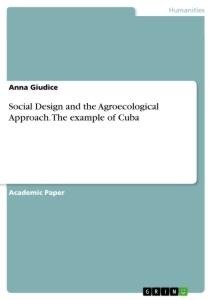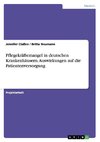
-
 Anglický jazyk
Anglický jazyk
Social Design and the Agroecological Approach. The example of Cuba
Autor: Anna Giudice
Academic Paper from the year 2018 in the subject Social Studies (General), grade: 10/10, University of Iceland, language: English, abstract: Since the collapse of the Soviet Union in December 1991 that changed the world's geopolitical balance, and after... Viac o knihe
Na objednávku, dodanie 2-4 týždne
14.76 €
bežná cena: 16.40 €
O knihe
Academic Paper from the year 2018 in the subject Social Studies (General), grade: 10/10, University of Iceland, language: English, abstract: Since the collapse of the Soviet Union in December 1991 that changed the world's geopolitical balance, and after the strengthening of the block against Cuba by the United States, many experts have predicted the imminent collapse of the Cuban Revolution. However, the Cuban Revolution survived despite the fact that all socialist regimes had fallen one by one in the face of the advancement of the neoliberal globalization. Cuban society, based on the concept of equality and freedom, was designed to assure social solidarity and mutual support of all members of society who are viewed as equals.
It is considered the fundamental value of the socialist humanism. The Cuban Revolution not only survived, but became notable and widely acknowledged with regards to its achievements in social and human development, particularly in education, health and international solidarity. Between 1989 and 1993, the most rigid year of the crisis called Special Period, gross domestic product was reduced by 50%, and the national debt tripled. The Cuban economy was, until then, largely dependent on exports, exports decreased by 75%.
- Vydavateľstvo: GRIN Verlag
- Rok vydania: 2021
- Formát: Paperback
- Rozmer: 210 x 148 mm
- Jazyk: Anglický jazyk
- ISBN: 9783346476845

 Ruský jazyk
Ruský jazyk 




 Nemecký jazyk
Nemecký jazyk 




